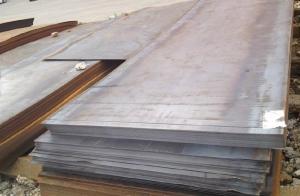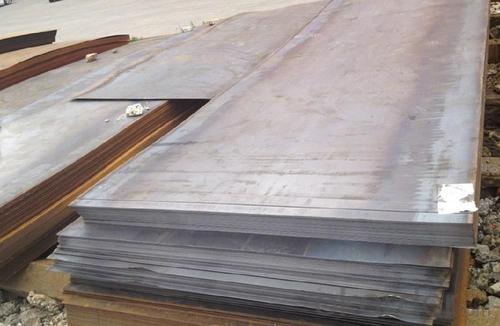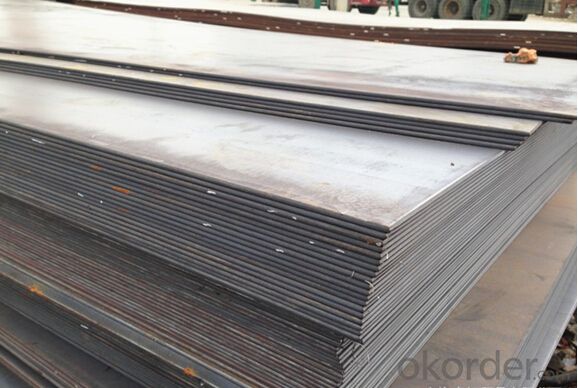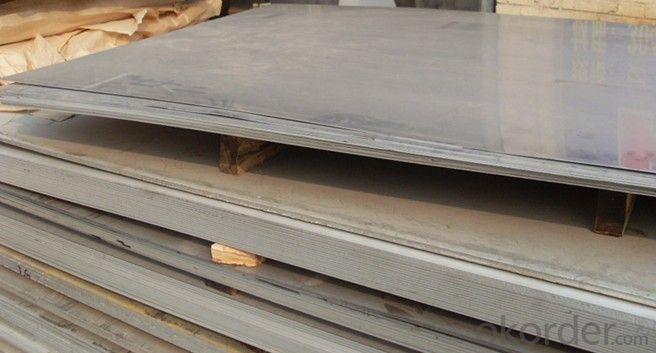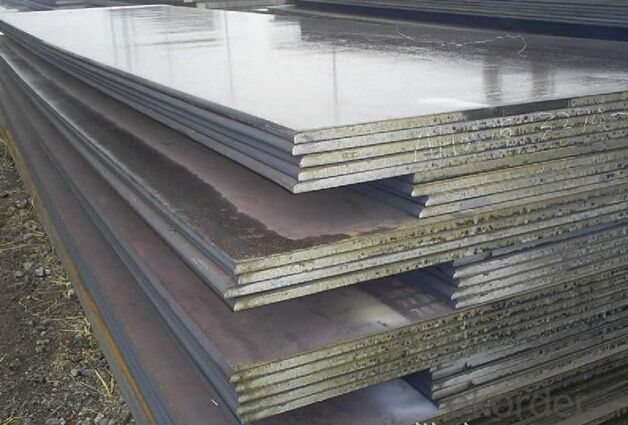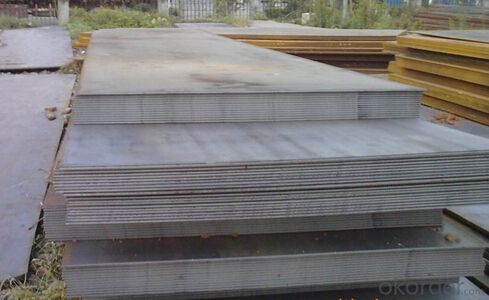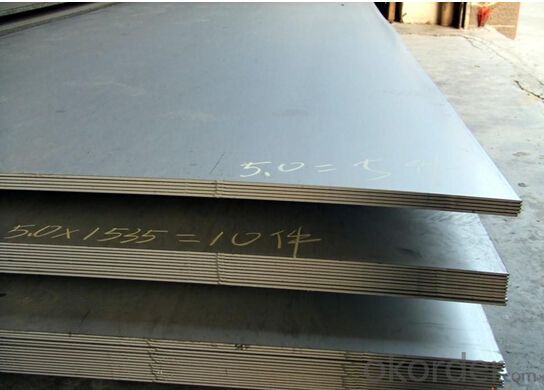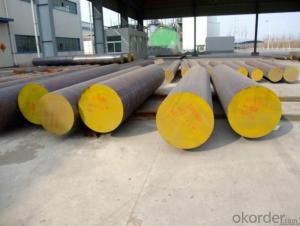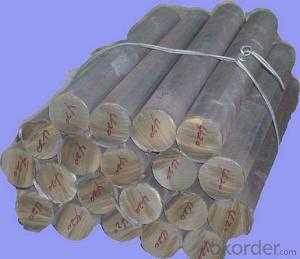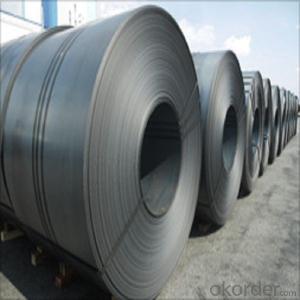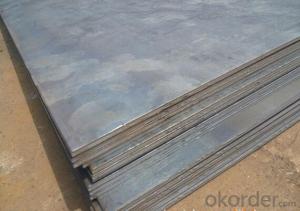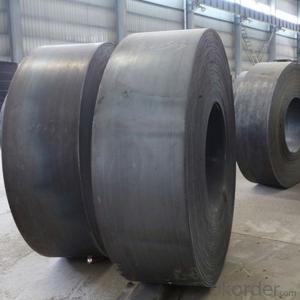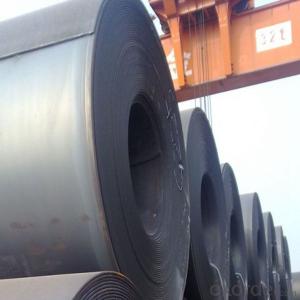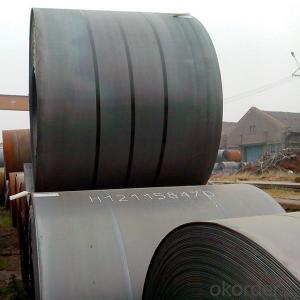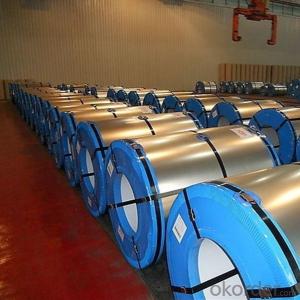SS400 Hot Rolled Steel Coil in Sheets First Grade
- Loading Port:
- Tianjin
- Payment Terms:
- TT OR LC
- Min Order Qty:
- 3 m.t.
- Supply Capability:
- 100000 m.t./month
OKorder Service Pledge
OKorder Financial Service
You Might Also Like
Specification
SS400 Hot Rolled Steel Coil in Sheets First Grade
Detailed Information of SS400 Hot Rolled Steel Coil in Sheets First Grade
| C | Si | P | S | yield Strength MAp | Tensile strength MAp | Elongation % | ||
| A36 | 0.24 | 0.4 | 0.045 | 0.03 | 250 | 400-520 | 26 | |
| C | Si | Mn | P | S | Cu | |||
| A283 | ≤0.27 | 0.15-0.4 | ≤0.9 | ≤0.035 | ≤0.04 | ≥0.2 | ||
| Thickness: | 6mm, 8mm, 12mm, 16mm, 20mm, 25mm, 30mm, 50mm, 80mm, 100mm, 150mm, 200mm | |||||||
| Width: | 1500mm, 1800mm, 2000mm, 2200mm, 2500mm | |||||||
| Length: | 6000mm, 8000m, can cut to width and length | |||||||
| Packing Details; | according to customer‘s require or export’s standard | |||||||
| Delivery time; | 7 days for stock sizes, 20-25 days for new production sizes | |||||||
| Port: | Tianjin China | |||||||
Related Products Overviews of SS400 Hot Rolled Steel Coil in Sheets First Grade
Product Name | Typical Grades | Diameter(mm) | Standard Adopted |
Carbon Steel | 20 (1020/S20C/C22) |
Ø16-Ø300 |
GB/SAE/ JIS/DIN |
40 (1040/S40C/C40) | |||
45 (1045/S45C/C45) | |||
Bearing Steel | GCr9 (51100/SUJ1) |
Ø12-Ø250 | |
GCr15 (52100/SUJ2/100Gr6) | |||
GCr9SiMn (A485-Gr.1/SUJ3) | |||
Cr-Mo Steel | 20Cr (5120/SCr420H/20Cr4) |
Ø12-Ø250 | |
40Cr (5140/SCr440/41Cr4) | |||
42CrMo(4140/SCM440/42CrMo4) | |||
Gear Steel | 20CrNiMo |
Ø16-Ø600 | |
20CrMn(5115/SMnC420/20MnCr5) | |||
20CrNiMo(8620/SNCM220/20CrMiMo2) |
Related Products Application of SS400 Hot Rolled Steel Coil in Sheets First Grade
Carbon Steel | l Mold bottom l Plastic mold l Construction machinery parts l Automobile parts l Security grills l Screens l Construction |
Bearing Steel | l Aerospace l Navigation l Nuclear energy l Chemical industry l Electronic information l Petrochemical l Instrument and meter l Transportation |
Cr-Mo Steel | l Mechanism & Fasteners gear l Stressed components for vehicles l Engines and machines l Parts of larger cross-section |
Gear Steel | l All kinds of gears l Statically and dynamically stressed component for vehicles l Engines and machine l Larger cross-section parts l Crankshafts |
Company Introduction of SS400 Hot Rolled Steel Coil in Sheets First Grade
CNBM International Corporation is the most import and export platform of CNBM group(China National Building Material Group Corporation) ,which is a state-owned enterprise, ranked in 270th of Fortune Global 500 in 2015.
With its advantages, CNBM International are mainly concentrate on Cement, Glass, Iron and Steel, Ceramics industries and devotes herself for supplying high quality series of refractories as well as technical consultancies and logistics solution.
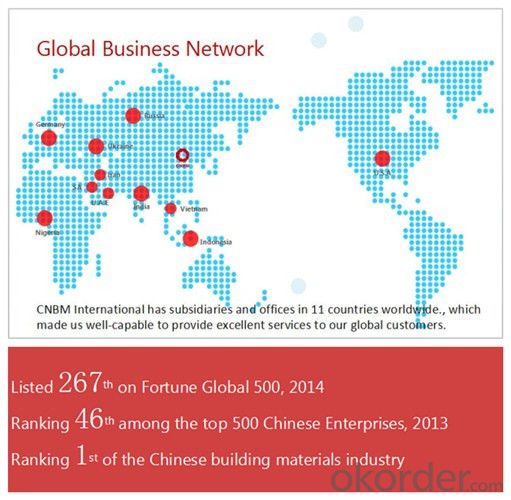
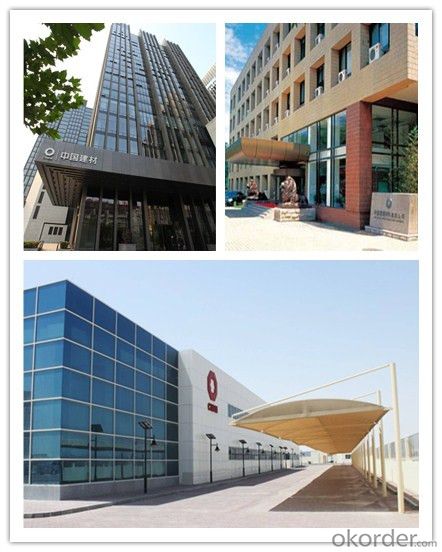
After-sale service | l CNBM provides the services and support you need for every step of our cooperation. We’re the business partners you can trust; you can relax and get on with doing business. l For any problem, please kindly contact us at any your convenient time, we’ll reply you in our first priority within 24 hours
|
Advantages
| l Industry experience over 20 years. l Shipment of goods -More than 70 countries worldwide. l The most convenient transport and prompt delivery. l Competitive price with best service. l High technical production line with top quality products. l High reputation based on best quality products.
|
Packaging & Delivery of SS400 Hot Rolled Steel Coil in Sheets First Grade
Packaging Detail | Sea worthy packing /as per customer's packing instruction |
Delivery Detail | 15 ~ 40 days after receiving the deposit |
Products Show
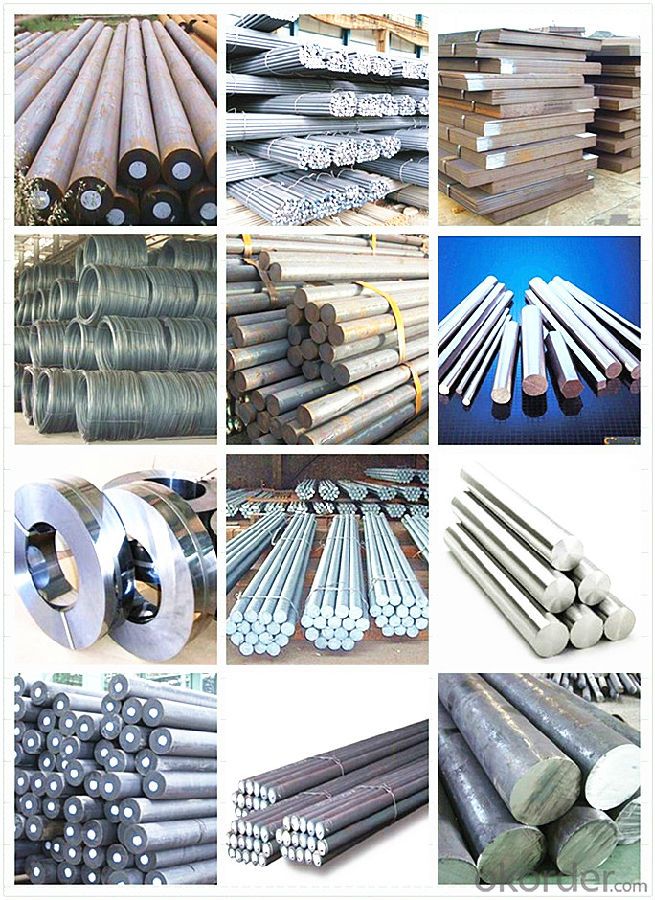
FAQ:
Are you a trading company or manufacturer? | Manufacturer |
What’s the MOQ? | 3 metric ton |
What’s your delivery time? | 15-35 days after downpayment received |
Do you Accept OEM service? | Yes |
what’s your delivery terms? | FOB/CFR/CIF |
What's the Payment Terms? | 30% as deposit,70% before shipment by T/T |
Western Union acceptable for small amount. | |
L/C acceptable for large amount. | |
Scrow ,Paybal,Alipay are also ok | |
Why choose us? | Chose happens because of quality, then price, We can give you both. Additionally, we can also offer professional products inquiry, products knowledge train (for agents), smooth goods delivery, excellent customer solution proposals. |
What's your available port of Shipment? | Main Port, China |
What’s your featured services? | Our service formula: good quality+ good price+ good service=customer's trust
|
Where are your Market? | Covering more than 160 countries in the world |
- Q: How does special steel contribute to the flexibility of products?
- Special steel contributes to the flexibility of products by providing enhanced strength, durability, and resistance to corrosion. Its unique properties allow manufacturers to design and produce products that can withstand high stress, extreme temperatures, and harsh environments. This flexibility enables the creation of a wide range of products that can be used in diverse industries, including automotive, aerospace, construction, and manufacturing.
- Q: What are the common defects found in special steel production?
- Some common defects found in special steel production include surface cracks, internal voids or inclusions, segregation, decarburization, and improper grain size.
- Q: How is heat-resistant steel used in high-temperature applications?
- Heat-resistant steel is used in high-temperature applications due to its ability to withstand elevated temperatures without losing its structural integrity. This type of steel is commonly used in industries such as aerospace, power generation, and petrochemicals, where it is essential to maintain the strength and performance of components exposed to extreme heat. Heat-resistant steel is used in the construction of furnaces, boilers, heat exchangers, and other equipment that operate under high temperatures, ensuring their reliability and longevity even in challenging environments.
- Q: How does special steel perform in high-temperature environments?
- Special steel performs exceptionally well in high-temperature environments. It has a high melting point, excellent resistance to heat and thermal shock, and can retain its strength and hardness even at elevated temperatures. This makes it highly suitable for applications such as aerospace, power generation, and automotive industries, where materials are exposed to extreme heat and require exceptional performance and durability.
- Q: What are the properties of corrosion-resistant stainless steel?
- Corrosion-resistant stainless steel possesses a unique combination of properties that make it highly resistant to corrosion. These properties include a high level of chromium content, which forms a protective oxide layer on the surface of the steel, preventing further corrosion. Additionally, it has low carbon content, which further enhances its corrosion resistance. The presence of other alloying elements like nickel and molybdenum also contributes to its resistance against corrosion in various environments, making it suitable for a wide range of applications.
- Q: How does special steel contribute to the pharmaceutical aftermarket industry?
- Special steel plays a significant role in the pharmaceutical aftermarket industry by providing high-quality materials for manufacturing critical components such as machinery, equipment, and tools. The unique properties of special steel, such as corrosion resistance, strength, and durability, ensure the production of efficient and safe pharmaceutical products. Additionally, special steel's ability to withstand extreme temperatures and pressures enables the creation of advanced processing systems, leading to improved efficiency and productivity in pharmaceutical manufacturing.
- Q: How does special steel perform in hydrogen embrittlement conditions?
- Special steel, known by other names like high-strength steel or alloy steel, possesses remarkable resistance to conditions that cause hydrogen embrittlement. Hydrogen embrittlement occurs when hydrogen atoms infiltrate the metallic lattice structure, causing it to become brittle and prone to fractures when subjected to stress. Given their distinct composition and microstructure, special steels are engineered to endure harsh environments, including those susceptible to hydrogen embrittlement. These steels often contain alloying elements such as nickel, chromium, and molybdenum, which enhance their ability to withstand cracking induced by hydrogen. The presence of these alloying elements in special steel facilitates the development of protective oxide layers on the steel's surface. These layers act as a barrier, preventing hydrogen atoms from diffusing into the metal matrix. Moreover, these elements can capture and bind hydrogen atoms, reducing their mobility and minimizing their negative impact on the steel's mechanical properties. Furthermore, special steels frequently undergo diverse heat treatments and processing techniques, like quenching and tempering, to further enhance their resistance to hydrogen embrittlement. These processes refine the steel's microstructure, enhancing its strength, toughness, and ductility while minimizing the risk of hydrogen-induced cracking. In general, special steel outperforms standard steels in hydrogen embrittlement conditions. Its unique composition, microstructure, and processing techniques make it highly resilient to the detrimental effects of hydrogen atoms. As a result, special steel ensures the structural integrity and reliability of components and structures operating in hydrogen-rich environments.
- Q: Can special steel be used in the oil and gas equipment manufacturing industry?
- Yes, special steel can be used in the oil and gas equipment manufacturing industry. Special steel alloys, such as stainless steel and alloy steel, possess high corrosion resistance, strength, and durability, which are crucial properties for equipment used in the oil and gas sector. Special steel is commonly used in the manufacturing of pipelines, valves, drill bits, and other critical components due to its ability to withstand harsh operating conditions and maintain structural integrity.
- Q: What are the different defense grades of special steel?
- The different defense grades of special steel typically include grades such as AR200, AR400, AR500, and AR600, which are commonly used for protective armor and structural applications. These grades have varying levels of hardness, strength, and resistance to abrasion, making them suitable for different levels of defense against impacts, wear, and penetration.
- Q: What are the requirements for special steel used in packaging machinery?
- The specifications for the special steel utilized in packaging machinery can differ depending on the specific application and type of packaging machinery employed. Nonetheless, there are certain common expectations for this type of steel. To begin with, it is crucial for the special steel employed in packaging machinery to exhibit exceptional resistance to corrosion. This is because packaging machinery frequently comes into contact with various liquids, such as water, oils, and cleaning solutions. The corrosion resistance feature aids in preventing the steel from deteriorating or rusting when exposed to these substances, thereby ensuring the longevity and dependability of the machinery. Secondly, the steel should possess a high level of hardness and wear resistance. Packaging machinery often entails moving parts and components that are constantly subjected to friction and wear. Therefore, the steel employed in these parts must be capable of enduring repetitive contact and abrasion without undergoing significant wear or deformation. The high level of hardness also helps in preventing the formation of scratches or grooves on the surfaces, which could compromise the quality of the packaging. Furthermore, the special steel should possess good machinability and formability. Packaging machinery frequently requires complex shapes and intricate designs, necessitating steel that can be easily machined and formed into the desired shapes and sizes. This facilitates the manufacturing process and allows for the creation of precise and accurate components. Additionally, the steel should possess high tensile strength and toughness. Packaging machinery may be subjected to mechanical stresses and impacts during operation, and the steel used in its construction must be capable of withstanding these forces without fracturing or breaking. The high tensile strength ensures the structural integrity of the machinery, while toughness helps in preventing the formation of cracks or fractures under sudden loads or impacts. Lastly, the special steel employed in packaging machinery should be cost-effective and readily available. The cost of the steel should be reasonable and within the manufacturer's budget, without compromising the quality or performance of the machinery. Additionally, the steel should be readily available in the market to ensure a continuous supply for manufacturing purposes. In conclusion, the requirements for special steel used in packaging machinery encompass corrosion resistance, high hardness and wear resistance, good machinability and formability, high tensile strength and toughness, as well as cost-effectiveness. Fulfilling these requirements guarantees the durability, reliability, and efficiency of the packaging machinery in various industrial applications.
Send your message to us
SS400 Hot Rolled Steel Coil in Sheets First Grade
- Loading Port:
- Tianjin
- Payment Terms:
- TT OR LC
- Min Order Qty:
- 3 m.t.
- Supply Capability:
- 100000 m.t./month
OKorder Service Pledge
OKorder Financial Service
Similar products
Hot products
Hot Searches
Related keywords
